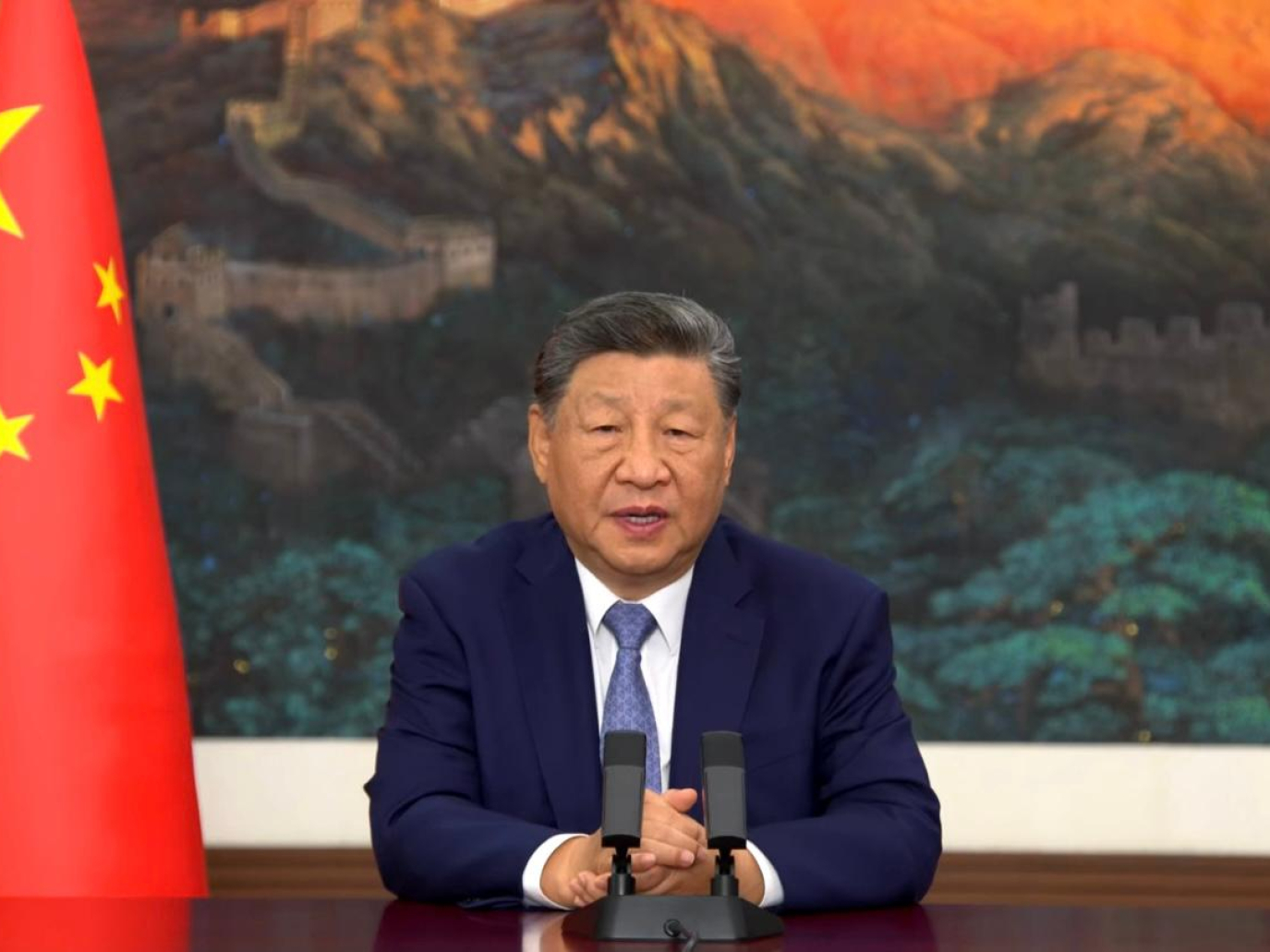
This article is also available in Italian / Questo articolo è disponibile anche in italiano
from New York – “The green and low-carbon transition is the trend of our time. Yet some countries oppose it.” With refined sarcasm, Chinese President Xi Jinping began his speech via video during the high-level segment on climate change, yesterday’s key event at the UN General Assembly.
The Chinese president's aim is to present his NDC within the Paris Agreement, namely the decarbonisation targets he intends to pursue by 2035. However, he also took the opportunity to fire a barb at the US, calling for shared development and the pursuit of “harmony between human beings and nature”, helping to close the gap between the global North and South through the contribution of clean technologies.
This is a political, industrial and social outlook that demotes others to the list of the unmentionable. Of course, he could have aspired to say that China is now joining the club of developed countries, but instead Xi Jinping reiterated the principle of “common but differentiated responsibilities”, which places the main responsibility for decarbonisation on industrialised countries.
In keeping with Chinese tradition, the speech confirms a well-established position, the product of a time and place where negotiations are conducted in the language of diplomacy, not in bar-room rants. “We aim to reduce emissions by 7-10% from peak levels by 2035, but we will strive to do better,” Xi Jinping told the General Assembly. To achieve these goals, China will invest even more in renewables, reaching over 30% of total energy consumption; it will expand ‘the domestic carbon trading market to high-emission sectors’. It will increase installed wind and solar power capacity sixfold compared to 2020, reaching 3600 GW installed.
“We will increase China's forests to 34 billion cubic metres, make clean fuel cars mainstream, and build a society that is adapted to climate change.” As the Chinese president says, a grand vision requires concrete action in all sectors of the national economy.
With 15.8 Gt of CO₂e emitted in 2024, China is currently the world's largest emitter, accounting for around 32% of global greenhouse gas emissions. However, it has probably already peaked in terms of emissions in 2025, setting (albeit unofficially) the baseline for its promised new target.
Environmentalists are not entirely satisfied: Andreas Sieber, associate director of policy and campaigns at 350.org, stated that China's new climate target is disappointing. “Reducing emissions by 7-10% from peak levels by 2035 is not enough for what the world needs. At the same time, with the renewable energy sector booming, climate ambition is now in the country's interest. China has often promised little and delivered almost nothing. Now the real test is the next Five-Year Plan, which needs to go beyond this: phasing out coal, accelerating renewable energy and ensuring that frontline communities benefit from the energy transition.”
Lauri Myllyvirta, founder and analyst at CREA, is more optimistic: “Simply maintaining current rates of clean energy growth can deliver much larger reductions in emissions,” he states in a press release. “The headline target falls far short of what is needed for alignment with the goals of the Paris Agreement, while leaving the base year for the emission reductions undefined kept the door open to near-term increases in emissions. This NDC should be seen as a floor, not a ceiling, for China’s ambition.”
Europe loosens its climate leadership
Immediately after China, it was Europe's turn, with Ursula von der Leyen reiterating that Europe will submit an emissions' reduction target of between 66 and 72% by 2035, with a commitment to maintain the target of -90% by 2040. She reaffirmed her commitment to climate finance, putting €300 billion on the table for Global Gateway, a European Union initiative that aims to support climate finance and green infrastructure projects around the world (including critical raw material mines), with the goal of tripling renewable energy by 2030.
“Today, European greenhouse gas emissions account for only 6%, but we are still the leading provider of climate finance,” she says, taking advantage of the American president's anti-historical position to reaffirm Europe's leadership on climate policy. But criticism from within and outside the Union is growing.
Thomas Gelin, Climate Campaigner at Greenpeace EU, commented: “Attending the UN Secretary-General's climate summit empty-handed is an abdication of the EU's climate leadership. It is hugely embarrassing and ignores Europe's responsibility to act after decades of enriching itself through carbon pollution. Every delay and every fraction of a degree will cost people their lives, health, homes and livelihoods: the EU must urgently agree on a real climate target in line with science.”
Of course, the result of isolating the United States on the transition worked. Virtually everyone attended the high-level event: Russia, Japan, Italy and Germany. All the small island states, the most threatened, were there. The heads of state of almost all African countries, including Chad, Mali and the Central African Republic, were present. Even Iran, Syria and Venezuela spoke about climate change. Only the US was missing: what was once a model for all is now seen on the international stage as a wealthy and powerful embarrassment.
Cover: Xi Jinping (Emanuele Bompan)



